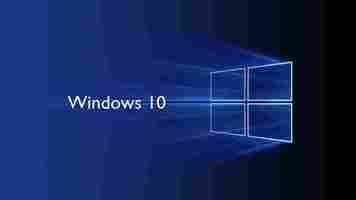Future Windows 10 updates will be much faster
Microsoft Windows 10 Updates will be much smaller and will run much faster starting in February 2019
Microsoft announced this week that it will be discontinuing a rather heavy component from its regular updates. Removing Delta Updates will make the Windows 10 update cycle much smoother and faster, and we can expect to see this change from February 2019 onwards.

The new system called Express Updates allows Windows to update single files as needed. This is opposed to the Delta Update system, which cumulatively builds patches on top of one another. Every time something changes everything needs to be downloaded and updated again. The result is that updates get larger and larger as the months go by.

We can see an example of this after the recent update we got in April 2018. Various patches were coming in at around 100 – 200 MB, but after a while, they ended up at approximately 1.2 GB. With the new Express system, these small patches will only ever be the sum of their individual parts, rather than including all the parts that came before them. Patches will stay at around 100 – 200 MB a month rather than growing each month until Windows 10 gets the next full update.

Windows 10 update: What to expect this fall
The result for us as Windows 10 users is that our operating system will receive smaller updates more regularly. The smaller update sizes will mean it won’t take our PCS as long to restart after an update.
Don’t expect Windows 10 full updates to end any time soon, however. We can still expect to get two of them a year. You can find out the details of the upcoming Windows 10 fall update here . This new system will only affect the smaller updates Windows 10 receives in between full updates.
More from Softonic
What is Windows 10 Ultimate Performance mode?
How to make Windows 10 run faster in 9 easy steps
The best 9 Windows 10 productivity tips and tricks
3 ways to secure Windows 10